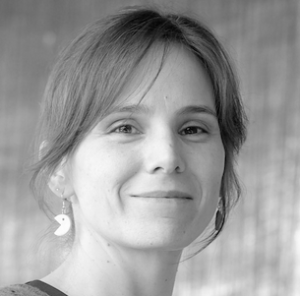NHR PerfLab Seminar: Parallel Graph Processing – a Killer App for Performance Modeling
Speaker: Prof. Dr. ir. Ana Lucia Varbanescu, University of Twente, Netherlands
Title: Parallel Graph Processing: a Killer App for Performance Modeling
Date and time: Tuesday, June 21, 2:00 p.m. – 3:00 p.m.
Abstract: Graph processing workloads are increasing in popularity and complexity: many problems ranging from bioinformatics to text analysis, and from social network analysis to logistics and optimizations use graphs as primary data models. With the increase in analysis complexity and data size, graph processing performance becomes problematic: execution time increases significantly, yet unpredictably.
For the past 15+ years, using massive parallelism – often in the form of GPU-like accelerators – has been a successful approach for many applications. However, parallel graph processing workloads do not always provide the expected performance benefits; moreover, the performance is heavily dependent on the graph structure, system architecture, and the algorithm itself.
In this talk, we will discuss several methods for performance modeling for parallel graph processing workloads on GPUs. Through a couple of case-studies, we contrast and compare analytical and machine-learning models, and discuss the pro’s and con’s of different approaches.
 Speaker bio: Ana Lucia Varbanescu holds a BSc and MSc degree from POLITEHNICA University in Bucharest, Romania. She obtained her PhD from TUDelft, The Netherlands, and continued to work as a PostDoc researcher in The Netherlands, at TUDelft and VU University in Amsterdam. She is a MacGillavry fellow at University of Amsterdam, where she was tenured in 2018 as Associate Professor. Since 2022, she is also an Adjunct Professor at University of Twente. She has been a visiting researcher at IBM TJ Watson (2006, 2007), Barcelona Supercomputing Center (2007), NVIDIA (2009), and Imperial College of London (2013). She has received several NWO grants (including a Veni grant) and she has been a co-PI for the EXTRA EU project.
Speaker bio: Ana Lucia Varbanescu holds a BSc and MSc degree from POLITEHNICA University in Bucharest, Romania. She obtained her PhD from TUDelft, The Netherlands, and continued to work as a PostDoc researcher in The Netherlands, at TUDelft and VU University in Amsterdam. She is a MacGillavry fellow at University of Amsterdam, where she was tenured in 2018 as Associate Professor. Since 2022, she is also an Adjunct Professor at University of Twente. She has been a visiting researcher at IBM TJ Watson (2006, 2007), Barcelona Supercomputing Center (2007), NVIDIA (2009), and Imperial College of London (2013). She has received several NWO grants (including a Veni grant) and she has been a co-PI for the EXTRA EU project.
Her research stems from HPC, and investigates the use of multi- and many-core architectures for HPC, with a special focus on performance and energy efficiency modeling for both scientific and irregular, data-intensive applications.

